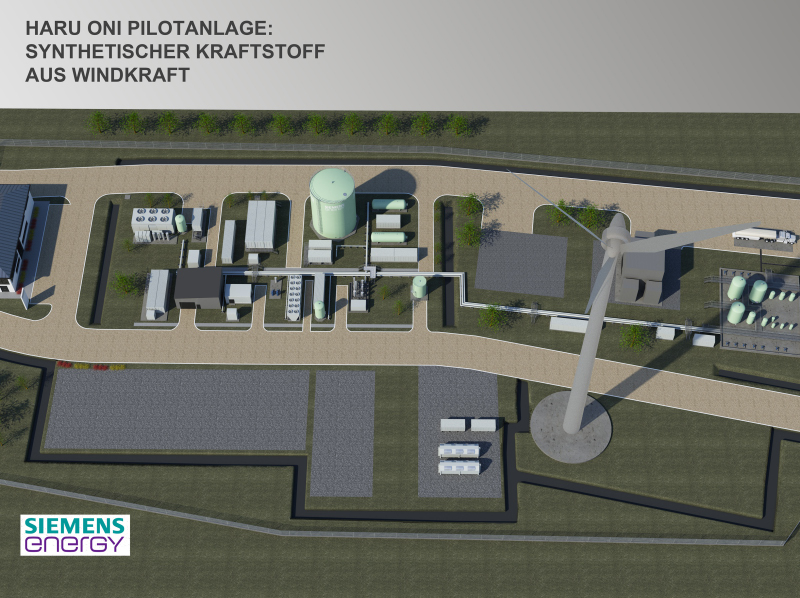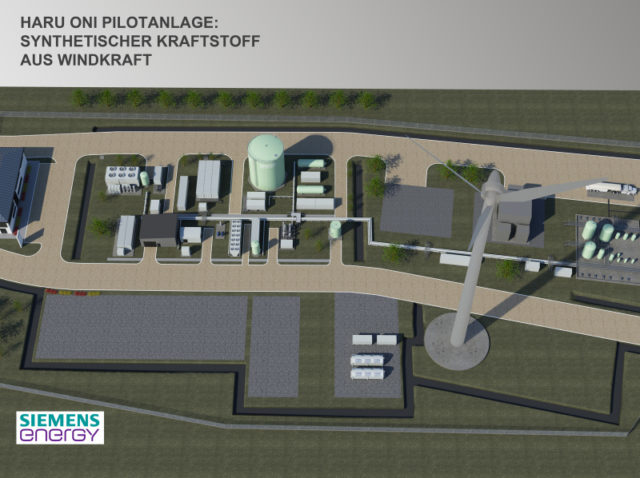Siemens Energy, Porsche, AME and Enel are to develop the first commercial hydrogen-based e-fuel production plant in southern Chile.
The Haru Oni ‘highly innovative fuels’ (HIF) project in the Magallanes region in southern Chile is to pilot what is slated to become the world’s first integrated, commercial industrial-scale plant for making hydrogen and other synthetic climate-neutral fuels (e-fuels).
In the pilot phase, around 130,000l of e-fuels will be produced as early as 2022. In two further phases, capacity is then to be increased to about 55Ml of e-fuels a year by 2024 and around 550Ml of e-fuels by 2026.
The project draws on the excellent wind regime in the Magallanes region, which rivals the typical offshore potential elsewhere, and Chile’s intention to become a leading producer and exporter of hydrogen and related products.
Related articles:
Chile – ambition to be a world leader in green hydrogen
New deal strengthens Siemens Gamesa’s position in Chile
Iberdrola and Porsche partner on ultra-fast charging of EVs
Porsche is to be the fuel’s primary user with plans for use in vehicles at motorsports events, at the Porsche Experience Centres and in time in serial production sports cars.
“Electromobility is a top priority at Porsche. E-fuels for cars are a worthwhile complement to that if they’re produced in parts of the world where a surplus of sustainable energy is available,” says Porsche CEO Oliver Blume.
“As a maker of high performance, efficient engines, we have broad technical expertise. We know exactly what fuel characteristics our engines need in order to operate with minimal impact on the climate. Our involvement in the world’s first commercial, integrated e-fuels plant supports the development of the alternative fuels of the future.”
The sports car maker’s initial investment in the project is roughly €20 million.
Andes Mining and Energy (AME) is the primary developer of Haru Oni and the owner of the HIF project company.
Enel is participating as a co-funder with a focus on wind power and electrolysis, and Chile’s petroleum company ENAP is providing operating staff and maintenance and logistics support.
Green hydrogen production
Siemens Energy is a co-developer and is serving as a systems integrator to cover the entire value chain from power generation using Siemens Gamesa wind turbines, to green hydrogen production to conversion into synthetic fuel.
To support the project Siemens Energy has been awarded a grant of some €8 million from Germany’s Federal Ministry for Economic Affairs and Energy as part of the country’s national hydrogen strategy.
“Establishing a sustainable energy economy is going to require some rethinking. Renewable energy will no longer be produced only where it’s needed, but where natural resources like wind and sun are available on a massive scale,” says Christian Bruch, CEO of Siemens Energy.
“So new supply chains are going to arise all over the world to carry renewable energy from one region to another. That’s especially important for Germany, which has to import energy if it’s going to meet its nationwide demand. Hydrogen will come to play an increasingly important role in storing and transporting energy.”
The project will utilise wind power to produce green hydrogen via electrolysis, which will then be combined with CO2 filtered from the air to form synthetic methanol, This renewable methanol can in turn be converted into gasoline using a methanol-to-gasoline technology to be licensed and supported by Exxon Mobil.
E-fuels form but one part of Porsche’s emobility drive and the company also is partnering with Iberdrola, ABB and other companies on advancing the development and uptake of electric vehicles.



